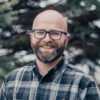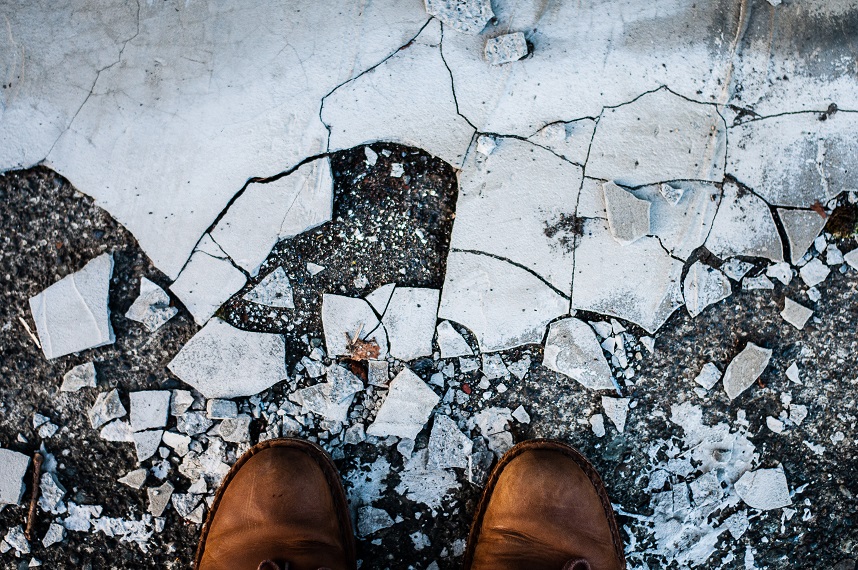I don’t care who you are, at some point, you’ll be broken. Even the son of God was broken. You’ll feel your humanity. Even the son of God died. You’ll feel like you’re the most unlikely person who could be used by God. Maybe broken in small ways here and there, or maybe broken in big ways that you’re not sure you’ll ever fully recover from. Even Jesus needed someone to care for him when he was broken—you need someone to care for you, too, no matter what kind of brokenness you’re walking through.
Whether you’re a pastor, teacher, counselor, parent, leader, whatever, you’re a human being with a soul. Recently I grabbed coffee with an important city leader. After some small talk, he said this to me: “Everyone expects me to be perfect all the time, and I’m anything but. For months I’ve been struggling with depression, and it’s embarrassing! Adam, that’s why I’m reaching out to you.”
God Uses The Most Unlikely
At some point, we all need others to care for us. And when you need care, just like Jesus did, God will often use unlikely people to serve you in your time of need. The person who may appear unlikely and broken may actually be the one who can help, while the person who appears whole and “qualified” may actually be the one who needs help.
The person who may appear unlikely and broken may actually be the one who can help, while the person who appears whole and “qualified” may actually be the one who needs help.
This was never more so the case for me than one afternoon when I got lunch with my friend Brett.
Brett has been in a wheelchair his entire life.
Born with cerebral palsy, he has limited use of his arms and hands. He has some strength but no balance. His speech is slurred. Even after years of knowing Brett, I often have to ask him to repeat sentences so I can understand him. Looking at Brett physically, his body is broken. Things don’t work as they should.
When we went to get lunch together, I was the one who helped Brett find his way into the building using ramps. I placed his order, knowing the person behind the counter would struggle to understand his words. And when we got to our table, I cut up his food and put a straw in his drink.
To anyone watching, Brett appeared to be the broken person who needed help. But little did they know, I was the broken one, the one who needed help, the one who needed to be made whole.
Brett asked how I was doing that day, and I shared that I was going through a hard time – a season of uncertainty and pain as I walked through a series of health scares with my parents, on top of a really busy time at work. I felt broken. He listened and listened and listened. After not saying anything for a while, Brett began to speak words of truth into my life that I’ll never forget:
“Adam, you’re so loved.”
“Adam, God is using you.”
“Adam, God can be trusted.”
At the very end, Brett shared this: “When we do things our way, they never work out. But when we do things God’s way, they go so much better.” So true!
Brett was in a wheelchair, needing help to eat lunch. Some would say he’s the very definition of broken, yet he ministered to me. Brett healed my hurt and my jaded heart during that hour-long lunch. He healed – not despite his brokenness, but because of it.
Love heals through the most unlikely of people.
No one is more qualified to love than the unlikely person. In fact, our past or present “disqualifications” actually put us in a more likely position to be relatable to others. We better recognize the pain in their eyes, and they understand that we see their pain. When they realize we’re not perfect, far from it, they’re much more willing to confide in us and trust us. Take a lesson from my friend Brett: Life is too short to play it safe. Even if you feel unlikely: Step out. Take risks. Practice a love that heals in the most unlikely of ways. Nine times out of ten, those limitations make you more qualified to love, not less.
You Can Start By Stopping
More specifically, how do we love even when we feel unlikely to be used? Begin to realize that God doesn’t create accidents. Whatever happened to you, whatever your story is, God wants to use it! Whether God caused something or simply allowed it to take place, he knew about it long before you did, and he not only can use it, he wants to use it for your good and the good of others.
Often for God to use our unlikeliness, we need to start by stopping. Stop blaming others for where you are. Stop feeling sorry for yourself and start stepping out. Blaming others and feeling sorry for yourself will kill all the ways that God wants to use you. Instead of being used by God, you’ll simply remain angry at him, unable to see the good that could come from your story.
Blaming others and feeling sorry for yourself will kill all the ways that God wants to use you.
When you start stepping out, you’ll begin to look for ways to match your deepest area of unlikeliness to a ministry or group of people who need to hear from you. You’ll tell them how you stopped—stopped complaining, stopped feeling sorry for yourself, stopped blaming God—so that you could start living again.
So, as you think of your unlikeliness, your brokenness, your own wounds, your pain, your failures, ask yourself: how can you use what looks like weakness, woundedness, or even unlikeliness to heal others like Jesus would? When you answer that, you’ll be living from the same place as people like Brett live.
Because love heals through the most unlikely of people. And it always has.
About


